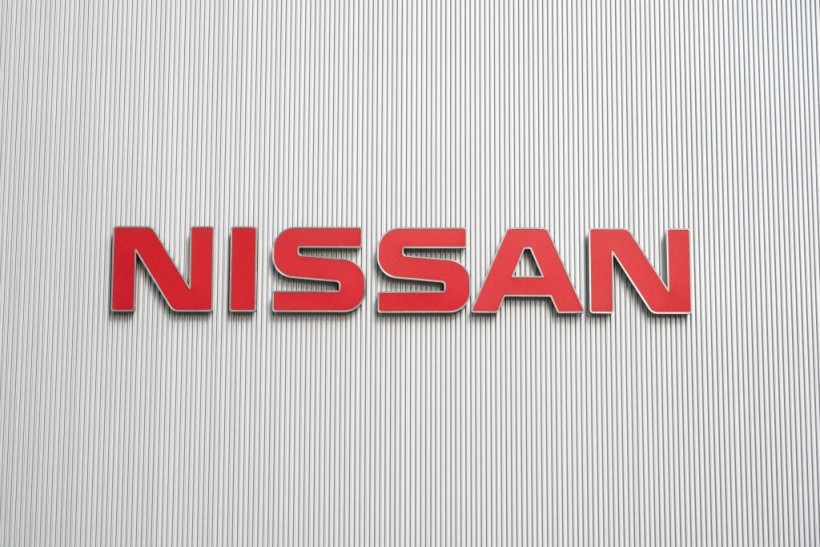Japanese automaker, Nissan, is implementing an electrification shift that will help reduce costs by using the same powertrain parts across various models and reducing the use of rare, expensive materials, according to a report by AP on Thursday, March 9.
The automaker presented its "X-in-1" development strategy, in which the X stands for various powertrain components such as an electric motor and inverter that can be used across models. By doing this, the company aims to reduce development and manufacturing costs by 30% in 2026 compared to 2019 levels.

This picture taken on November 5, 2022 shows the logo of Japanese automaker Nissan Motor displayed at the company's head office in Yokohama. - The automaker is expected to announce second quarter results on November 9, 2022.
Keeping Up in the EV Race
AP notes that while Nissan was a pioneer in electric vehicles, it has fallen behind rivals such as Tesla and BYD of China. As the world moves towards ecological models in response to concerns about climate change, Nissan aims to show its capability in this area.
Senior Vice President of Nissan, Toshihiro Hirai, has acknowledged that prices of rare earths and other materials required to make electric vehicle batteries and other parts are expected to increase in the coming years.
This means that automakers must have a strong strategy for obtaining raw materials if they hope to succeed in electrification.
The 2019 Nissan Note EV has 25% rare materials by weight, compared to the first-generation vehicle, the Leaf. Nissan aims to reduce this to 1% or less.
Nissan is committed to reducing the use of rare materials in the production of its EVs according to a company executive. The 2019 Nissan Note EV contains 25% rare materials by weight, but Nissan aims to reduce this to just 1% or less.
The automaker is also investing in solid-state battery technology for EVs, which is expected to lower costs substantially if successful. By 2030, Nissan plans to offer EVs at the same cost as gasoline-engine vehicles, said Takao Hirai, senior vice president of Nissan.
Currently, the cheapest EVs like the Leaf sells for under $30,000, compared to small gasoline-engine cars like the Nissan Sentra, which cost around $21,000 in the US. While the Tesla Model 3 is a relatively affordable EV at $43,000, it is more expensive than many gas-powered cars.
However, EVs are often eligible for tax credits and incentives, and with high gasoline prices, they can be a wise long-term investment.
According to Consumer Reports, EV owners can save between $1,800 and $2,600 in operating and maintenance costs for every 15,000 miles they drive, compared to gas-powered vehicles.
Read Also: Nissan Leaf Recall: 65,000 EVs Come with Driver Manual Error
More Enjoyable Experience
Nissan believes that EVs offer drivers a more enjoyable experience as they are quiet and provide a smoother ride, with better control over bumps and jolts.
The automaker is aiming to launch 27 new electrified models by 2030, including eight e-Power "series hybrid" models with both a gas engine and electric motor.
The company's EV offerings will also expand to include solid-state battery technology, which promises to be less expensive to produce than traditional lithium-ion batteries.
With these innovations, Nissan aims to increase the affordability and convenience of EVs, helping to promote their widespread adoption and further reducing carbon emissions.
Related Article: Nissan Unveils Max-Out, An EV Convertible Prototype










